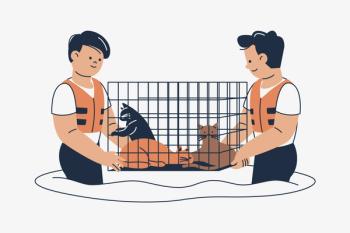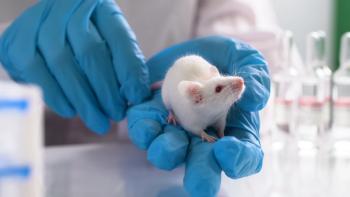
- dvm360 August 2019
- Volume 50
- Issue 8
Lawmakers aim to combat zoonotic disease with new One Health law
The bipartisan bill would improve public health preparedness and bolster the effectiveness and efficiency of the U.S. governments response to emergencies.
The 2014-2015 highly pathogenic avian influenza outbreak in the United States led to the culling of nearly 50 million birds and more than $3 billion in losses for poultry and egg farmers, animal feed producers, baked good producers and other related industries.
U.S. Senators Tina Smith (D-Minnesota) and Todd Young (R-Indiana) have reintroduced a bipartisan bill aimed at improving public health preparedness by ensuring that federal agencies employ a One Health approach to prevent and respond to disease outbreak.
Initially introduced by Smith in
The veterinary profession is well aware that zoonotic diseases can impose enormous health and economic costs. Consider these statistics:
- Between 1997 and 2009, the global costs from zoonotic disease outbreaks exceeded
$80 billion . - About
2.5 billion cases of zoonotic infection are reported globally each year, resulting in 2.7 million human deaths. - The 2014-2015
highly pathogenic avian influenza outbreak in the United States led to the culling of nearly 50 million birds and more than $3 billion in losses for poultry and egg farmers, animal feed producers, baked good producers and other related industries.
"Minnesota was hit by an avian flu outbreak a few years back, and since then I've talked with Minnesotans about how we can work to prevent future outbreaks because they take a real toll on families and the economy," Smith stated in a
According to the release, the bill would require the U.S. Department of Health and Human Services and the USDA to adopt, coordinate and develop a One Health framework with other agencies to:
- Advance workforce development related to prevention of and response to disease outbreaks in animals and humans
- Improve coordination among federal agencies that study human and animal health and the environment
- Foster a better understanding of the connections between human, animal and environmental health.
The bill has been endorsed by the AVMA, the National Association of County and City Health Officials, the Association of American Veterinary Medical Colleges (AAVMC) and the Infectious Diseases Society of America. Andrew McCabe, DVM, MPH, JD, CEO of the AAVMC, called the bill “an essential strategy for success” in addressing One Health problems. “Creating more cooperation among the various federal agencies involved in this effort will certainly increase their effectiveness,” Dr. McCabe said in the release.
Articles in this issue
over 6 years ago
Heartworm hotspots: When pet travel is the troubleover 6 years ago
Slow growth to the freestanding hospitalover 6 years ago
Say cheese, Mr. Vice President!over 6 years ago
Sunday hours: Worth it or the wrong fit?over 6 years ago
Food for thought: New data on nutrition for veterinary clientsover 6 years ago
Penn Vet to run cannabis clinical trial for arthritic dogsover 6 years ago
Pin the competition: How to make market share to work for youover 6 years ago
The bright side of pet nutrition: Food and the human-animal bondNewsletter
From exam room tips to practice management insights, get trusted veterinary news delivered straight to your inbox—subscribe to dvm360.






